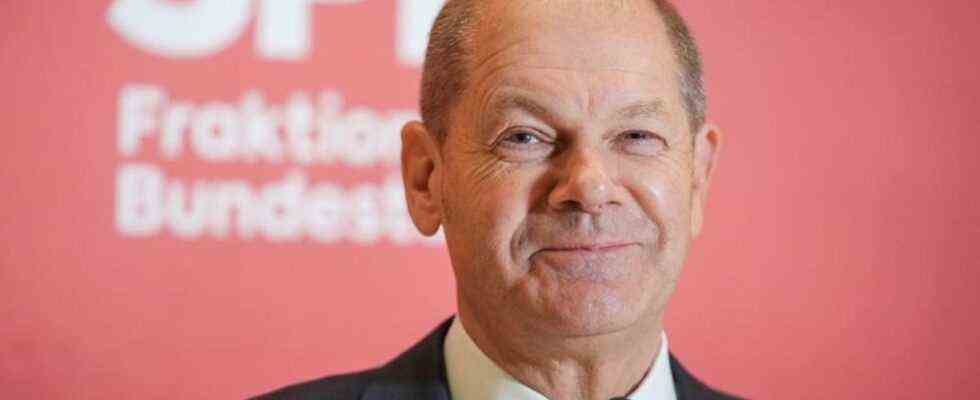Coalition negotiations
Scholz: “Something grows together that fits together”
The coalition negotiations between the SPD, the Greens and the FDP are apparently turning into a home straight. Olaf Scholz is satisfied. Photo: Kay Nietfeld / dpa
© dpa-infocom GmbH
In between there was probably a lot of argument. But the traffic light parties leave no doubt that they want to govern together. This week they want to be a big step further.
The coalition negotiations between the SPD, the Greens and the FDP are apparently turning into a home straight. According to SPD chancellor candidate Olaf Scholz, they are right on schedule.
There are “very good, very constructive talks that are progressing quickly,” Scholz told the German press agency on Saturday. Greens boss Annalena Baerbock admitted temporary problems: “We were fed up because we had the feeling that only the Greens are responsible for climate protection.”
The traffic light parties announced last week that a coalition agreement would be presented this week. At the start of the coalition talks on October 21st, they had set the goal that Scholz would be elected Chancellor in St. Nicholas Week from December 6th and that his government would be sworn in in the Bundestag.
In his speech at the party congress of the SPD Brandenburg in Schönefeld, Scholz did not save with big words when he mentioned the planned traffic light coalition. «There are new friends, the SPD, the Greens and the FDP. (…) Something grows together, something that fits together, ”he said, referring to a quote from ex-Federal Chancellor Willy Brandt (SPD). After the fall of the Berlin Wall in 1989, he said: “Now what belongs together is growing together.”
Scholz: You can tell that everything is right on a human level
Scholz praised the atmosphere of the negotiations. “You can tell that not only are factual problems properly dealt with and that there are always good joint projects, but that everything is also right on a human level,” he said. “That is also important if you plan not only to write a coalition agreement, but also to form a government and do it well over the years.”
For the Greens, however, the talks were obviously difficult at times. Baerbock said in a speech at the party conference of the Brandenburg Greens in Potsdam that there are areas in which “this color constellation will create a real departure”. But she also made it clear: “It is clear that climate protection cannot be a single chapter in this coalition agreement.”
Climate neutrality must be the guideline for every political area, not only for an environmental department, but also for agriculture, for transport and, above all, for business and industry, said Baerbock. Greens federal manager Michael Kellner spoke of “brutally exhausting” negotiations. “We have already achieved a lot.” He hoped that the result could be read in the new week.
According to reports, negotiations were also held at the weekend. The main negotiators are currently discussing the results of the political working groups. The top team should settle any remaining points of conflict. In addition, the ministerial posts are still to be distributed – traditionally, these important personal details are clarified at the end of coalition talks. Lists of names were already circulating at the weekend – but initially they were not officially confirmed.
Scholz is already thinking about re-election
Scholz sees the planned traffic light not only as an alliance for one electoral term. If the government comes about and is elected in December, “we should run to be re-elected,” he said. “We want to turn it into a longer story if the Federal Chancellor election has now taken place, and that means that we behave like a government that governs the country well together all the time.”
The third in the group, FDP leader Christian Lindner, sees it similarly. He told the “Süddeutsche Zeitung”: “A coalition should form with the intention of being re-elected together.” If you do it differently, it leads to competition within the coalition. “That weakens a constellation as a whole.” If you take the election programs as a starting point, the traffic light obviously begins as an alliance of convenience. “But more can come of this in the future.”
FDP Vice-Vice President Wolfgang Kubicki was also confident. It takes a lot of educational effort to come up with sensible solutions, he said on Sunday at a state party conference in Schleswig-Holstein. “And I don’t mean the Social Democrats by that.” But he could say with certainty that the Liberals would become coalition partners. “We stay seated until we have a reasonable result.”

